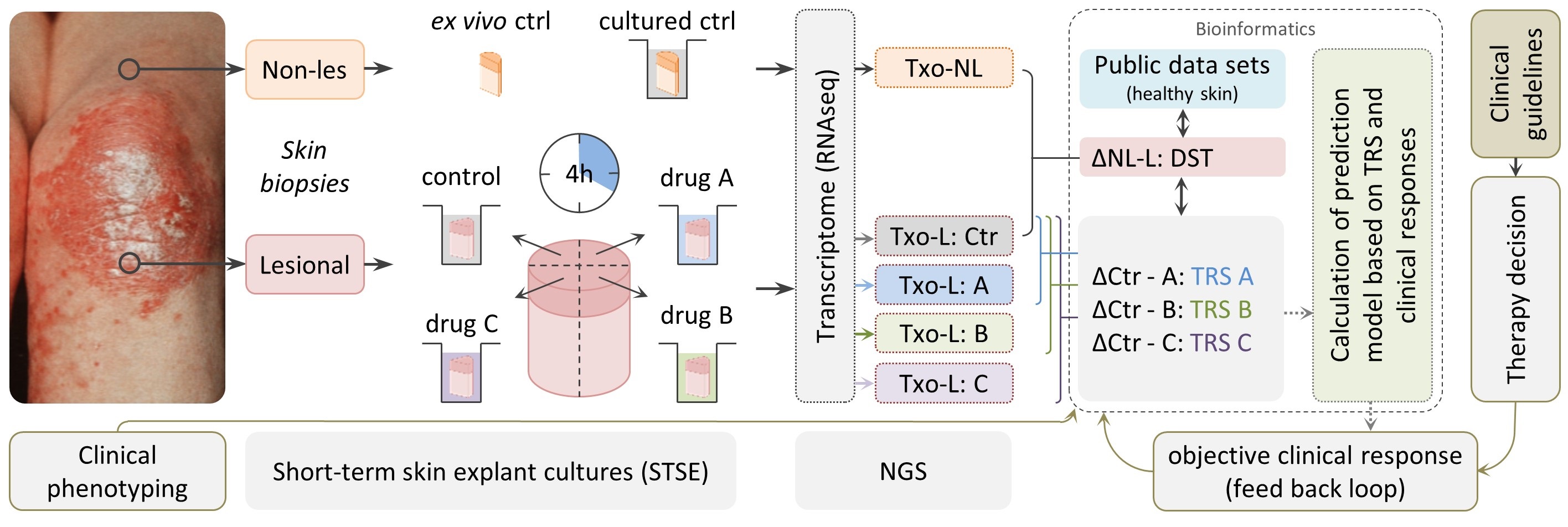DisSECt Disease modelling in Skin Explant Cultures
Principal investigator:
Prof. Dr. med., Dr. phil. nat. Christoph Schlapbach, Department of Dermatology, Inselspital, Bern University Hospital, Dermatology Research Group, Department for Biomedical Research, University of Bern. For more information, please visit the website.
Excessive inflammation is a major component of human pathologies. However, the mechanisms that drive tissue inflammation are complex. To tap the huge therapeutic potential, therapies need to be tailored to the disease-driving mechanisms of every patient. The skin is an ideal model organ to study these mechanisms and to elaborate novel concepts for therapy that are relevant beyond the skin. Here, we will build on our preliminary data and use short-term skin explants from inflammatory skin disease to investigate the effects of targeted anti-inflammatory therapies on tissue inflammation. To this end, skin samples are incubated with a panel of targeted therapeutics (biologics, small molecules) and the transcriptional responses are monitored. The transcriptional response signatures are then compared to the clinical therapy response and incorporated into a prediction model, using deep learning algorithms. We will first refine this model using model diseases such as psoriasis, for which targeted therapies are well-established. Second, we aim at expanding this approach to inflammatory skin diseases where pathogenesis is unknown and effective therapies are lacking. The overarching aim is to classify every patient's disease according to its likelihood to respond to available therapies and thus maximize the benefit from modern anti-inflammatory treatments.


